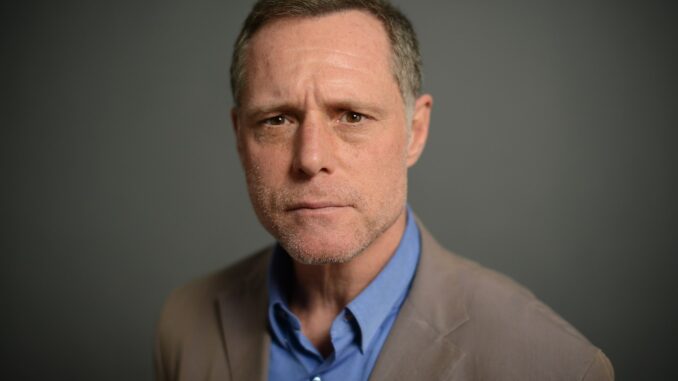
The Ghost in the Machine: Jason Beghe’s Unseen Agony and the Birth of Voight
The flickering screen is a powerful magician, conjuring worlds and characters that feel utterly real. We, the audience, are enchanted by the illusion, rarely pausing to consider the intricate machinery, the sweat, the tears, and sometimes, the literal agony that powers it. The revelation that Jason Beghe, the gravel-voiced, morally ambiguous, yet undeniably captivating Sergeant Hank Voight of Chicago P.D., navigated the entirety of the show’s foundational first season in “extreme pain” pulls back the curtain on this hidden reality, offering a poignant illustration of an actor’s profound dedication and the often-invisible sacrifices made in the name of art.
Sergeant Hank Voight, as we know him, is a force of nature: a grizzled veteran with a stare that could melt steel, an unshakeable resolve, and a gruff exterior that barely conceals a fiercely protective heart. He moves with a deliberate, almost predatory grace, an embodiment of hardened authority. To imagine the man behind this iconic performance, Jason Beghe, simultaneously battling “extreme pain” during those crucial early days, is to witness a profound act of professional alchemy. It’s a testament not just to Beghe’s resilience, but to the actor’s innate ability to transmute personal suffering into a convincing, and perhaps even enhanced, portrayal.
Season one is the crucible where a television series finds its footing, where characters are forged and storylines begin their intricate weave. For Beghe, it was a physical ordeal superimposed on an artistic one. Every grimace, every tense line of dialogue, every sharp turn or sudden movement had an unseen counterpoint: a real-life ache, a radiating discomfort that demanded to be ignored. He wasn’t merely acting as Voight; he was performing an elaborate, high-stakes ballet of suppression, ensuring that his pain remained the ghost in the machine, never overtly betraying the stoic detective on screen. The “show must go on” isn’t merely a cliché; it’s a deeply ingrained professional creed, amplified in the relentless grind of television production where continuity, deadlines, and the livelihoods of hundreds hinge on an actor’s unwavering presence.
What is particularly illustrative about Beghe’s experience is how the struggle might have, paradoxically, imbued Voight with an unexpected layer of authenticity. Could the internal battle against pain have subtly informed Voight’s often-grumpy demeanor, his clipped speech, or the weary intensity in his eyes? Without intending to, Beghe might have been channeling a genuine, physical discomfort into his character’s world-weariness, his hardened edges, his refusal to suffer fools gladly. The lines between the performer’s reality and the character’s fiction blur, creating a richer, more textured portrayal that resonates with an audience, even if they’re unaware of its true genesis.
The anecdote serves as a potent reminder of the unseen labor behind the glamorous facade of Hollywood. We cheer for the heroes, boo the villains, and get lost in the narratives, rarely contemplating the physical toll exacted from those who bring these stories to life. Beghe’s courage to work through such intense discomfort for an entire season speaks volumes about the commitment required for his craft – not just to the role itself, but to the countless crew members, writers, and fellow actors who depend on that steadfast professionalism.
Ultimately, Jason Beghe’s revelation about his Season 1 ordeal transcends a mere behind-the-scenes tidbit. It’s a poignant illustration of the human spirit’s capacity for endurance, the unwavering dedication of an artist, and the fascinating interplay between personal suffering and public performance. It invites us to look beyond the polished surface of our favorite shows and to acknowledge the very real, often hidden, sacrifices made by the architects of illusion. It reminds us that sometimes, the most compelling performances are not just a feat of acting, but a profound act of will, etched onto the screen by an enduring, unflagging spirit, even as a body rebels in extreme pain.
